27 October is observed as Kashmir Black Day to mark the protests and hatred by Kashmiris around the world over the forced occupation of the valley by the Indian Occupation Forces.
On 27 October, the suffering of the Kashmiri people began with the landing of Indian troops in Jammu and Kashmir after New Delhi suspended the special status of Indian Illegally Occupied Jammu and Kashmir (IIOJK) through the repeal of Articles 370 and 35-A of the Indian Constitution on 5 August 2019.
Despite the gross and blatant violations of human rights, attacks on Kashmiri identity and culture by the BJP (Bharatiya Janata Party) continue as Muslim students are forced to sing Hindu hymns and follow their rituals.
Muttahida Majlis Ulema, which comprises 30 Kashmiri Muslim organizations, condemned the move, saying it was designed to accelerate the integration of the younger generation with Hindutva notions of India. The move is seen as part of an effort to erode Muslim identity in the region. The Majlis led by Kashmiri leader Mirwaiz Umar Farooq, who has been detained for the past three years, the religious body points to efforts to isolate Muslim scholars and undermine their role.
Also Read: The Forty-Four-Days of Glory: Azerbaijan’s Struggle for Justice and Peace
Last month, two clerics were arrested and several Islamic scholars were indicted for a crackdown on Muslim groups in Kashmir. This arrest was condemned by Pakistan. A Foreign Office said the illegal detention of Islamic clerics was “India’s attempt to separate Kashmiris from their distinct religious and cultural identity”.
The BJP has also taken over the Jammu & Kashmir (J&K) Waqf Board, including all of its properties across the region and Eidgah Srinagar, a historic place for congregational prayers. In response, Shabbir Shah, deputy chairman of the Hurriyat All Parties Conference (APHC), accused the BJP government of violating the rights of Muslims. Other Kashmiri leaders regard it as part of the BJP’s efforts to control places important to Muslims throughout the occupied territory. This mastery includes temple control. Seizing control of the temple was not a harmless move; it is a repressive measure aimed at eliminating their political role as well as Muslim identity.
The BJP has taken another step to attack Kashmiri culture. For the last 100 years or so, Urdu has been the official language of Jammu & Kashmir state. But in 2020, India’s ruling party ended Urdu’s exclusive status with a law making Hindi, Kashmiri and Dogri the official languages at J&K, in addition to Urdu and English.
A series of actions to weaken Kashmiris and change Kashmiri Muslim identity has led to the illegal recognition of the J&K territory by India on 5 August 2019. With the repeal of Article 370 of India’s constitution, which grants the state special status, J&K is divided in two and the territory is part of the Union of India. This is a blatant violation of a UN Security Council Resolution which prohibits the parties from making any material changes to the situation. Delhi then imposed a communications blockage and shutdown and carried out mass arrests of political leaders and activists in a crackdown.
Also Read: Palestine Solidarity Month: A Collective Movement for Al-Aqsa and Palestine’s Freedom
According to a September 2022 briefing by Amnesty International, “the Indian government has drastically intensified its repression of the J&K people by subjecting them to human rights abuses. These violations include restrictions on the right to freedom of opinion and expression; to personal freedom and security; for movement; for privacy; and to restore and access justice. The authorities have committed these offenses with absolute impunity.”
Contrary to international law and UN resolutions, Delhi has made administrative and demographic changes to undermine Muslims in Kashmir. Such actions resemble Israel’s illegal settlement policy and are characteristic of the tactics employed by the occupiers.
The Modi government is also continuing with plans to trust the constituency to give Jammu greater representation. In addition, they also plan to reduce Muslim representation and shift the political balance to Hinduism in the region. The plan to form a new constituency was announced by India’s Delimitation Commission in May 2022. This leaves Jammu with a quota of six more seats in the 90-member J&K Assembly, while Kashmir will be given one more seat bringing Jammu’s total to 43 and Kashmir 47.
The aim behind the plan is to hold elections that Modi’s government can claim. But the plan has met fierce resistance from Kashmiri leaders including traditional pro-India politicians who have in the past participated in elections. All considered the plan unacceptable and dismissed it as a travesty of the one man one vote principle. In July, election officials in the occupied Valley announced the granting of voting rights to every Indian citizen, even temporary residents, in another attempt to change the demographics of the region.
Also Read: Hassan al-Turabi: A Controversial Thinker from Sudan
Pakistan again calls for its voice to the world community to hold India accountable for its crimes against humanity at the IIOJK. India must end its brutal oppression of Kashmiris, comply with its international human rights obligations, and honor its commitment to grant Kashmiris their inalienable right to self-determination through an independent and impartial plebiscite under the auspices of the United Nations. Pakistan will always support the Kashmiri people until they get their legitimate and inalienable right to self-determination, in accordance with the UN Charter and relevant UN Security Council Resolutions. This is indispensable for long-lasting peace and security in South Asia. (T/ri/RE1)
Mi’raj News Agency (MINA)
Also Read: Who Exactly is the RSF Group Shaking Sudan?






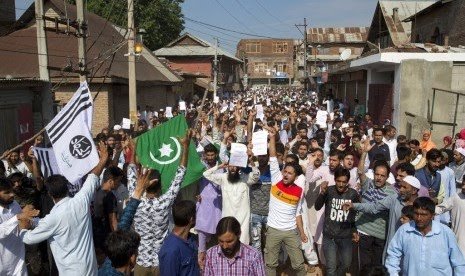


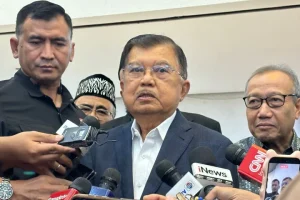


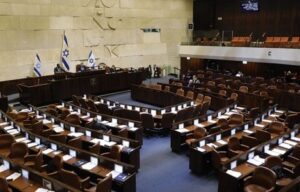


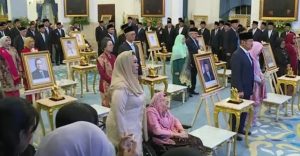

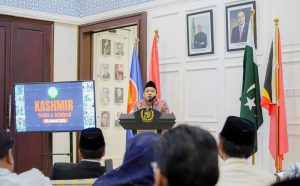
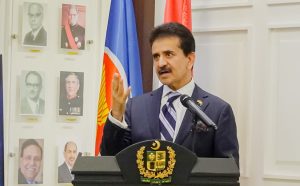
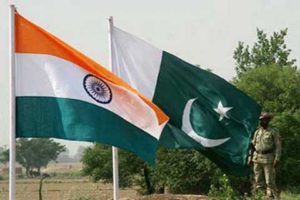
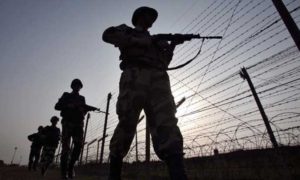
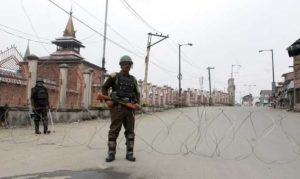







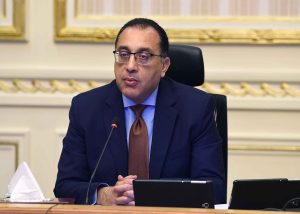




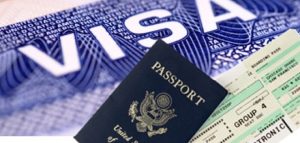



 Mina Indonesia
Mina Indonesia Mina Arabic
Mina Arabic